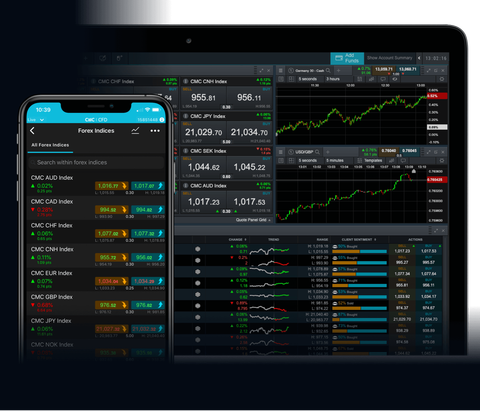The Role of Central Banks in Forex Markets

Introduction
Forex markets, where currencies are traded internationally, are significantly influenced by the actions and policies of central banks. These institutions, which serve as the primary monetary authorities of their respective countries, play a crucial role in shaping currency values through various mechanisms. For participants in the Forex market, understanding the role of central banks is vital, as their decisions often create ripples across the global financial landscape.
The Mandate of Central Banks
Overview of Central Bank Functions
Central banks like the Federal Reserve in the United States, the European Central Bank (ECB), and the Bank of Japan, serve as the pillars of their countries’ financial systems. Their key responsibilities include managing monetary policy, controlling inflation, regulating the banking sector, and maintaining economic stability. The decisions and policies formulated by these banks are pivotal in determining the value of national currencies.
Monetary Policy and Forex Markets
The monetary policy set by central banks directly influences the Forex markets. Central banks control the money supply and set interest rates, which in turn affect currency values. For instance, if a central bank opts to increase interest rates, it could lead to an appreciation of the national currency, as higher rates often attract foreign investments seeking higher returns.
Central Banks and Currency Values
Impact of Interest Rate Decisions
Interest rates are a powerful tool in the arsenal of central banks, directly affecting currency strength. When a central bank raises its key interest rate, it generally leads to a strengthening of the national currency. This is because higher interest rates provide more attractive returns to investors, leading to increased demand for that currency.
Currency Market Intervention
Central banks also engage in direct market interventions to control or adjust the value of their currency. These interventions can be overt, such as buying or selling their currency in the Forex market, or more subtle, like influencing market perceptions through public statements or policy signals.
The Effects of Quantitative Easing
Quantitative easing (QE) is a strategy used by central banks to stimulate the economy by purchasing government securities. While QE can boost economic growth, it often leads to depreciation of the national currency in Forex markets, as it increases the money supply.
Central Bank Policies and Forex Trading
Anticipating Central Bank Decisions
For Forex traders, anticipating and understanding central bank decisions is key to successful trading. Predicting when a central bank will change interest rates or engage in market interventions can give traders a significant edge, as these events can lead to large movements in currency values.
Risk Management Strategies
Given the influence of central bank policies on currency markets, traders must develop robust risk management strategies. Central bank actions can create significant market volatility, and traders need to be prepared to adjust their positions and hedge their risks accordingly.
Long-Term Trends vs. Short-Term Fluctuations
Central bank policies can influence long-term currency trends as well as short-term market fluctuations. Traders need to distinguish between these to effectively tailor their trading strategies. While long-term trends might be driven by ongoing policy shifts, short-term fluctuations are often the result of specific announcements or unexpected policy changes.
Central Banks and Global Economic Interactions
The Global Impact of Major Central Banks
The decisions of major central banks not only affect their domestic markets but also have a global impact. For instance, the policy decisions of the Federal Reserve can influence economic activities and currency values worldwide, given the dominant role of the U.S. dollar in global trade and finance.
Coordinated Actions Among Central Banks
During times of global financial crises, central banks often act in coordination. Such concerted actions can have far-reaching effects on the Forex markets. An example of this was seen during the 2008 financial crisis, where major central banks around the world took synchronized measures to stabilize the markets.
Emerging Market Central Banks
Central banks in emerging markets also play a significant role in the Forex market. These institutions often face different challenges compared to their counterparts in more developed economies, such as managing capital flows and maintaining currency stability in the face of global economic changes.
Conclusion
In the complex world of Forex trading, the role of central banks is both dynamic and profound. Their policies directly influence national currencies and, by extension, the broader financial markets. Traders who keenly observe and understand the actions of these central banks are better positioned to make informed decisions, manage risks effectively, and capitalize on the opportunities presented in the ever-changing landscape of the Forex markets. As the global economy continues to evolve, the decisions and policies of central banks will remain a key driver of currency values and market dynamics.








